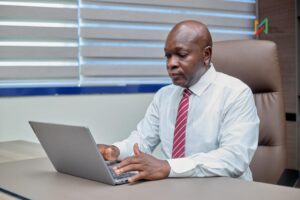
Each of the 275 constituencies in the country is a beneficiary
By Jude Duncan
Impressive is probably the best word to describe the Government’s effort to procure over 300 ambulances for the country.
Even more impressive is the fact that each constituency now boasts of a state of the art ambulance. Though this is not sufficient given the emergency health needs of the country, it is a good place to start from.
A very significant improvement on the previous 55 functioning ambulances for 30 million people in 2018.
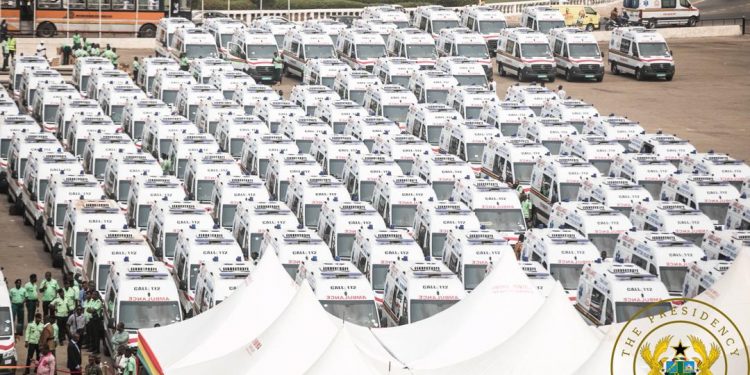
The ambulances are not expected to deal with all of Ghana’s challenges in the health care sector, but it sure improves the current situation and Government deserves commendation for this initiative.
The procurement of the ambulances was however not without controversies. The initial scheduled date for the ambulances was postponed much to the chagrin of Ghanaians.
I did not agree with the reasons for the decision to postpone the commissioning of the ambulances from January 6, 2020. to January 28 2020.
Others joked the monies spent on the commissioning could’ve resourced some deplorable state hospitals and I somewhat agree.
However, considering it is an election year, it made sense for Government to score the highest political points available by putting together a grand, colorful, and extravagant commissioning event.
The fanfare that characterized the commissioning was interesting, more interesting was the health minister’s comment at the launch, when he “assured” the President, Nana Akufo-Addo that he could now have a good sleep.
“Mr. President, I want to assure you that tonight, I will sleep and I will beg for permission to be late tomorrow,” he jovially said while speaking at the commissioning of some 307 ambulances for the country.
His comments validate my assumptions on the work and planning that went into the commissioning.
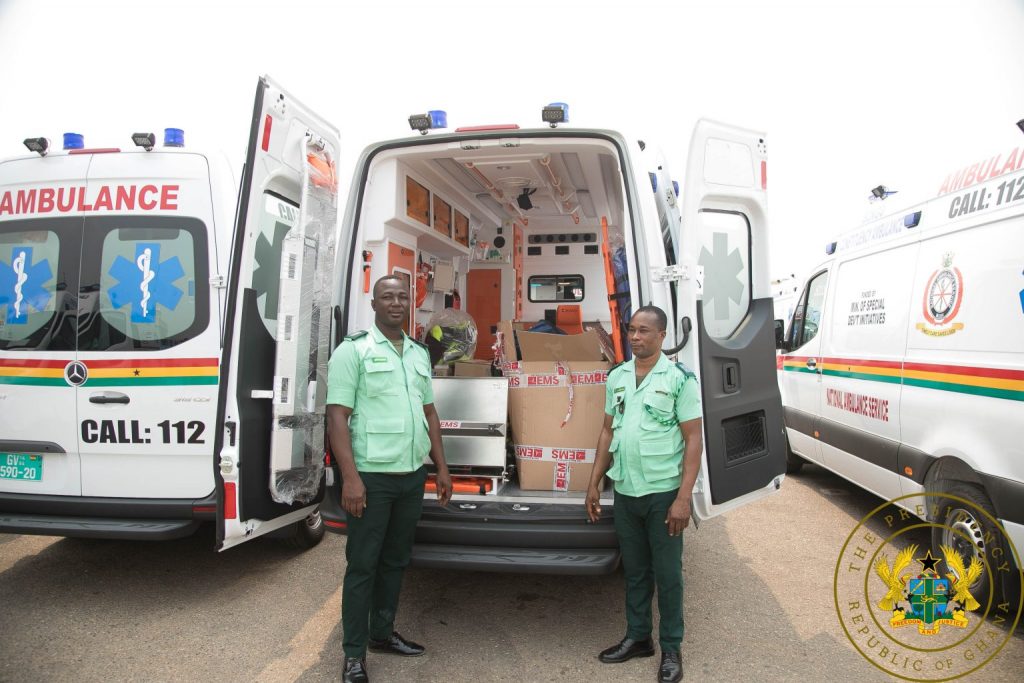
Another interesting spectacle was the introduction of the 112 new emergency code number for all emergency response units.
This meant the 191, 192 and 193 which hitherto were dedicated to the Police, Fire and Ambulance services respectively has been replaced by 112, which integrates all three services.
But what was supposed to be a solution to a problem, led to another.
The President in his address cautioned against Prank calls.
“I will appeal that this improvement in the provision of emergency services not be abused. We are told that 90 percent of calls made to the providers of emergency services are usually prank calls.
“This is not right as it only endangers the lives of Ghanaians in need,” the President stressed.
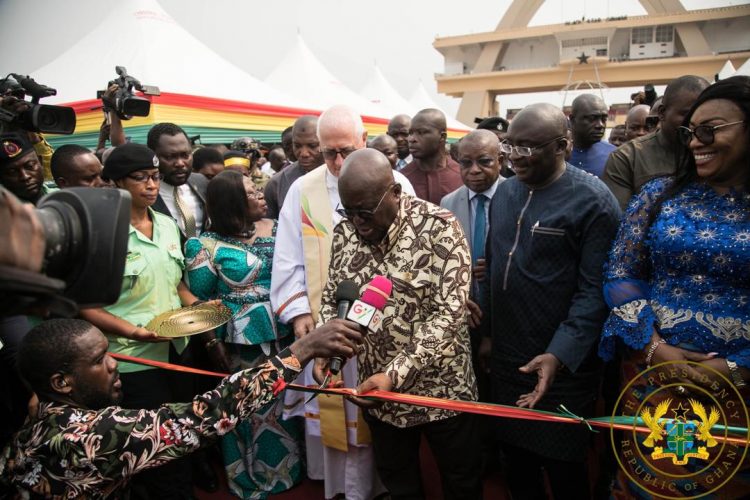
After a week of the commissioning, the Dispatch Emergency Centre in an interview I conducted disclosed that they received an estimated 200 prank calls in an hour.
“Prank calls are giving us a very big problem; it is making our work very difficult. Prank calls are just engaging the line to prevent genuine cases from getting to us. Ever since the 112 was launched, within an hour we receive more than 200 prank calls.” An official of the Ambulance dispatch centre told me.
The numbers are staggering, but rather very unfortunate.
When I interviewed the Head of the Dispatch Centre, it was evident that the menace of prank calls was by far a bigger problem for her team than the rather small space they operate from at Accra Central near the Pharmacy and Dental council.
The bigger danger with the prank calls, however, is the possibility to miss out on genuine emergency cases and that is where I worry.
Head of the Dispatch centre, Matilda Nartey told me, her outfit plans to collaborate with the various telecommunication networks and the police to arrest and prosecute prank callers.
‘Some call just to insult and some even call to demand money. We’ve been writing all the numbers that have been calling for us to give it to the telcos and also to report to the police, if it will be possible, the individuals behind that could be prosecuted.” She said.
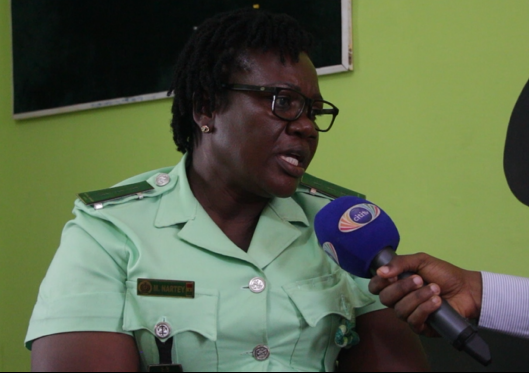
It is unwise and very foolhardy to assume a better use of one’s time is to call officials to make fun of them.
While some ignorantly call the emergency toll-free number to seek for information, it is important the number is reserved ultimately for emergency situations. Over time, this will go a long way to conscientize Emergency Medical Technicians to apply some sense of urgency to their work especially when it involves saving human lives.
While familiarizing with how the dispatch centre works, another sad predicament was the issue of what became known as the “no-bed syndrome” after an initial Citi Newsroom report.
The syndrome tells the tales of how some major hospitals deny sick people beds in their hospitals for various reasons ranging from the very absurd and unfathomable to very genuine yet, inexcusable.
While some of the hospitals wanted to prevent incidents of patients dying on their beds for record’s sake, some others genuinely didn’t have beds.
The situation also forced doctors to treat some patients on benches and on the floor while others were made to wait on plastic chairs, as a result of congestion at the emergency unit of the Hospital.
This started a national conversation on resourcing public hospitals. Every local newspaper, tabloid, news website, radio and TV news program reported on the matter.
The President, in an interesting twist of events, used his salary to procure hospital beds.
The Korle Bu Teaching Hospital in September 2019 purchased 200 beds to help eliminate the “no bed syndrome” facing the facility.
The Presidency and the deputy Chief of staff more notably also supported other hospitals to procure some beds.
However, rather regrettably, the situation still persists, at least according to the Head of the Ambulance Dispatch Centre, Matilda Nartey.
“Sometimes the hospitals will tell us we didn’t confirm whether they had beds before bringing the patients and we can be roaming with one patient from one hospital to another. When we are lucky enough to get a hospital, in most cases they tell us to leave our trolleys behind, because there is no bed and this makes our work very difficult, in case of another emergency.”
“So we are pleading with the receiving hospitals, when we come there, they should try to accept our casualties.” She said.
“We can move to about six hospitals before we can get a place” she added.
As impressive as the procurement of the ambulances appears to be, it serves no purpose if lives are not saved.
While commending government for procuring the ambulances, it is expedient all stakeholders and managers of our healthcare sector come together and relook at how to ensure an efficient healthcare system that values life.
Let’s fully operationalize all CHPS compounds and other Government hospitals.
Let’s prioritize the needs and concerns of health workers. That is what functional countries prioritize, the human resource base, which is by far the most important.
The rather frequent strike by nurses and other health groups is not a pleasant spectacle.
We can do better, let’s do better! Yes, we can.

